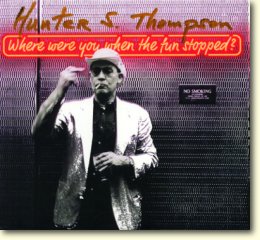I just finished writing an article on the broadcast flag, to be published in the next INDICARE Monitor. The broadcast flag is a technological protection measure to prevent the unauthorized redistribution of digital over-the-air television content, specifically via p2p networks. It is based on an proposal by the Motion Picture Association of America (MPAA) and
mandated by the US Federal Telecommunications Commission (FCC). This mandate makes it obligatory for all new devices that are capable of receiving digital television signals and are sold and distributed in the US to meet the conditions of the broadcast flag regime, starting July 1st. This includes the general purpose computer.
The broadcast flag itself has been criticized for:
1) its security regime: based on the wrong threat model, see
Felten 2003; analog hole: (re)distribution and redigitalization may still take place through analog (video) jacks
2) its negative influence on users' interests: fair uses are prevented, users are locked-in to their digital home networks
3) its negative effect on innovation: new technologies have to be in accordance with the broadcast flag regime and become dependent on the authorization of a (federal) gatekeeper. e.g. Free and Open Source software/hardware, which' licenses give a freedom to tinker, may come into friction with the conditions of the broadcast flag.
The authority of the FCC to mandate the broadcast flag, and not leave it to the US Congress to set a rule, has been
challenged in court today. The first reports are coming in:
1,
2. Some reporting about the flag in recent days:
Freedom To Tinker,
Darknet (NY Times article analysis),
Ars Technica,
Susan Crawford (for a more thorough background, with a twist, read her
Biology of the Broadcast Flag essay).
While the broadcast flag is a US endeavor, and there has been little coverage in Europe, it should be watched with care from out here. Though no broadcast flag is coming up at a European level, yet, there have been indications that the "rights" of broadcasters are strengthened at the cost of (the fair uses) of users. This might be done by a supra-national organization like the WIPO, the World Intellectual Property Organization. The so-called WIPO Broadcast Treaty has sought to strengthen the control of broadcasters over their digital broadcasts by assuring that (future) signatories would protect against technological circumvention. This treaty has been on the table fro some time now.
Interesting to see is that the Motion Picture Association (MPA) is trying to lobby the European Union into stronger, mandated protection of digital works. Slightly coming short from proposing a European broadcast flag it recommended the implementation of a tight security regime in its comments to the Final Report of the High Level Working Group on Digital Rights Management (see
this earlier post).
It has to be seen if the broadcast flag will be "copied" into a European regulatory framework. However, one may wonder if European consumer device and information technology manufacturers will not start to incorporate broadcast flag-approved protections in their products as a sort of default in order not to miss out on the US market. Though, the world is bigger than the US, and there's more (potential) market share to cater to elsewhere. It will be interesting to see if the broadcast flag regime, if it isn't struck down by the mentioned court case, will have a negative effect on American innovation, while non-American, non-US focused manufacturers are not covered by the regime and more free to build the products they and users want.
- - -
Later: Susan Crawford gives her view on the first reports on the hearing: good & bad news. She says clearly what I've been leaning to [italics added]:
If only some consumer electronics manufacturers would see their longterm interests more clearly -- it has to be more important to be able to innovate in ways consumers will like than to build to a required standard that no consumer wants. There is no market demand for the broadcast flag.
- - -
These are just some preliminary thoughts, more to follow as the broadcast flag case proceeds.
- - -
For an analysis of the broadcast flag in Dutch, see this article [PDF], co-written with Ot van Daalen.
Later: More broadcast flag roundup at EEJD blog
Later: Mark Cuban gives some advice to the FCC: Call the entertainment industry's bluff. For years the entertainment industry has threatened not to provide digital content without a protection scheme like the broadcast flag in place. CBS did this, but didn't live up to it. Cuban writes it's time to call the bluff on others, and let users have the programs they want: unencombered by special protection measures.













